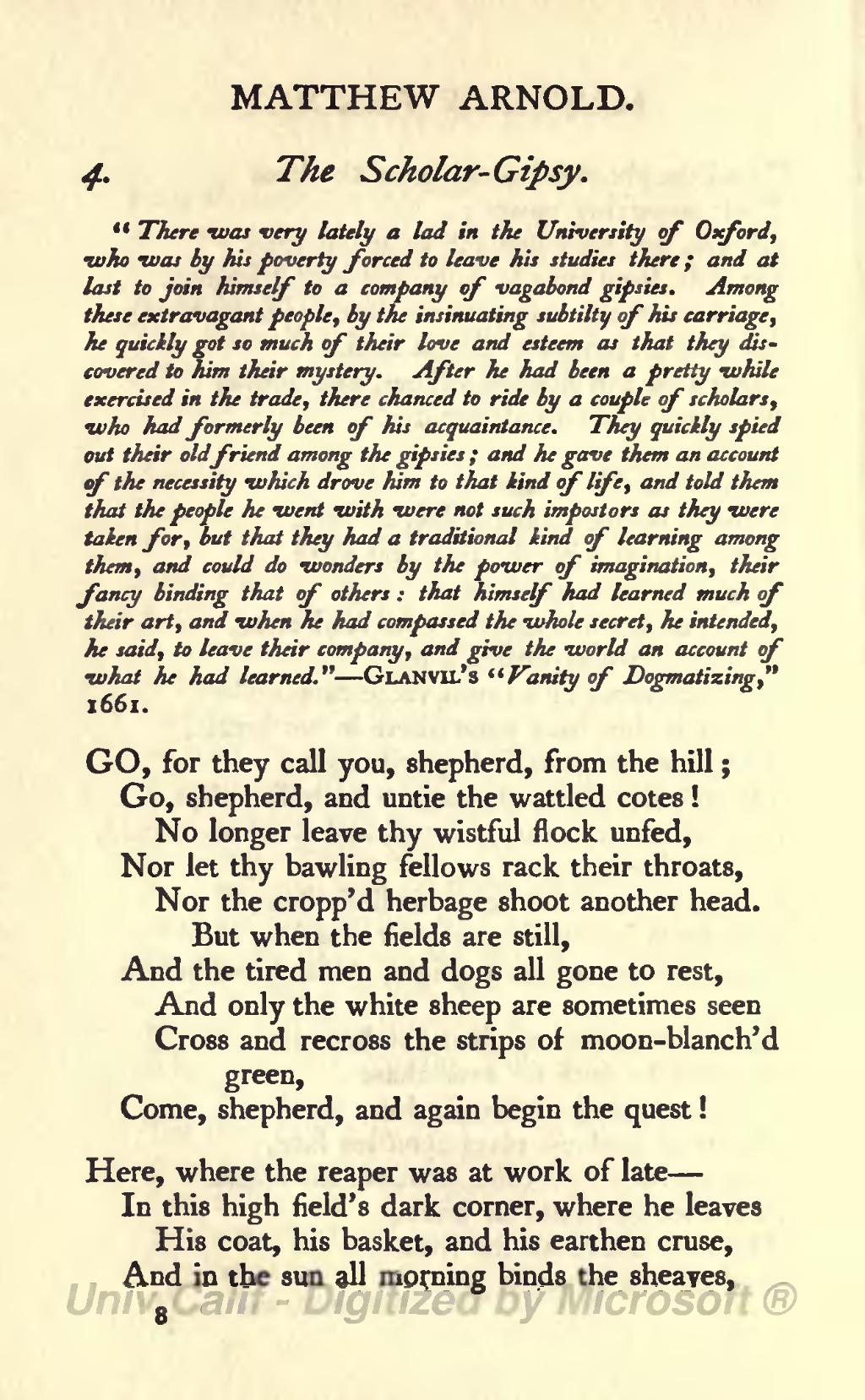MATTHEW ARNOLD.
"There was very lately a lad in the University of Oxford, who was by his poverty forced to leave his studies there; and at last to join himself to a company of vagabond gipsies. Among these extravagant people, by the insinuating subtilty of his carriage, he quietly got so much of their love and esteem as that they discovered to him their mystery. After he had been a pretty while exercised in the trade, there chanced to ride by a couple of scholars, who had formerly been of his acquaintance. They quickly spied out their old friend among the gipsies; and he gave them an account of the necessity which drove him to that kind of life, and told them that the people he went with were not such impostors as they were taken for, but that they had a traditional kind of learning among them, and could do wonders by the power of imagination, their fancy binding that of others: that himself had learned much of their art, and when he had compassed the whole secret, he intended, he said, to leave their company, and give the world an account of what he had learned."—Glanvil's "Vanity of Dogmatizing," 1661.
GO, for they call you, shepherd, from the hill;
Go, shepherd, and untie the wattled cotes!
No longer leave thy wistful flock unfed,
Nor let thy bawling fellows rack their throats,
Nor the cropp'd herbage shoot another head.
But when the fields are still,
And the tired men and dogs all gone to rest,
And only the white sheep are sometimes seen
Cross and recross the strips of moon-blanch'd green,
Come, shepherd, and again begin the quest!
Here, where the reaper was at work of late—
In this high field's dark corner, where he leaves
His coat, his basket, and his earthen cruse,
And in the sun all morning binds the sheaves,
